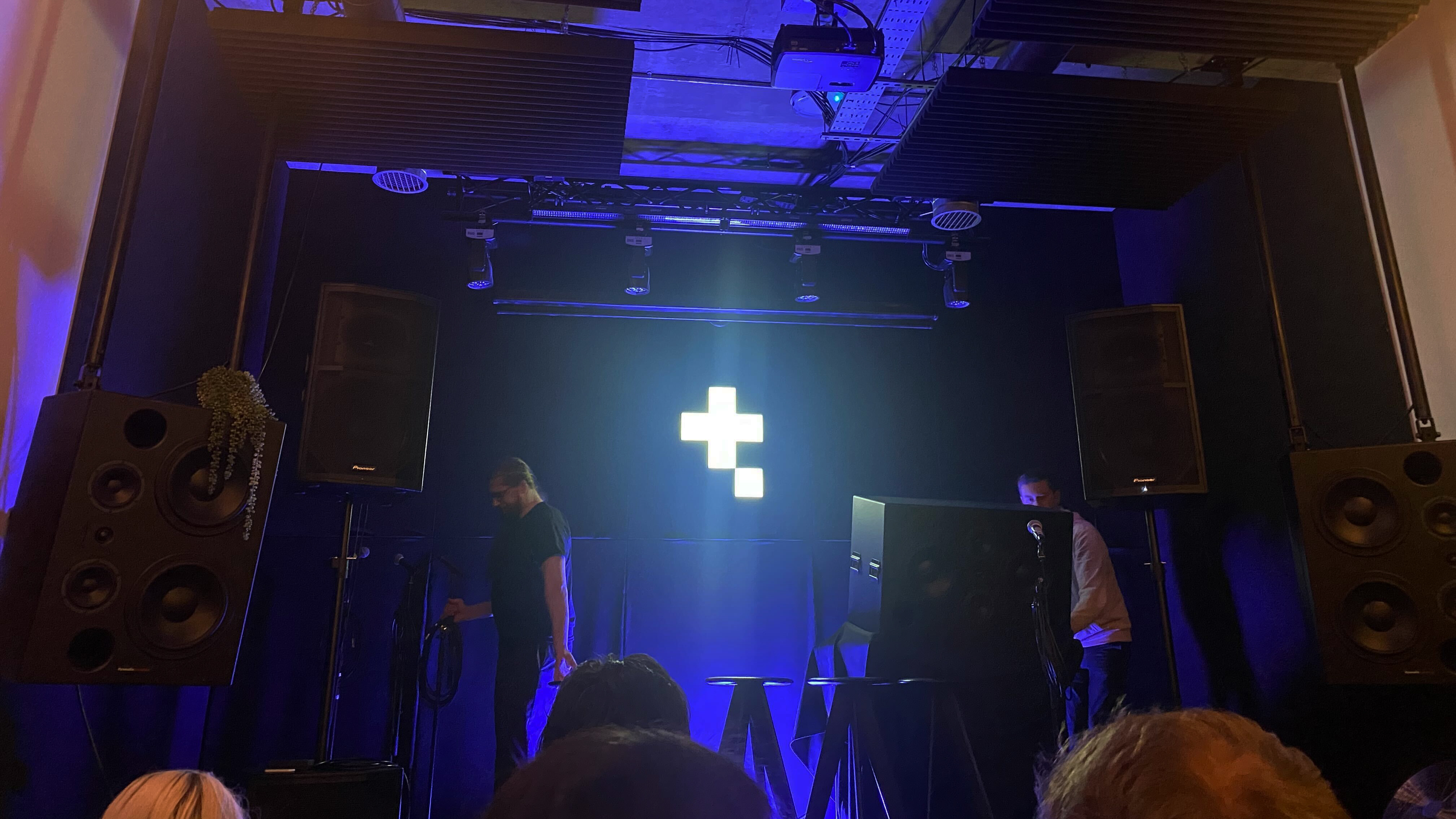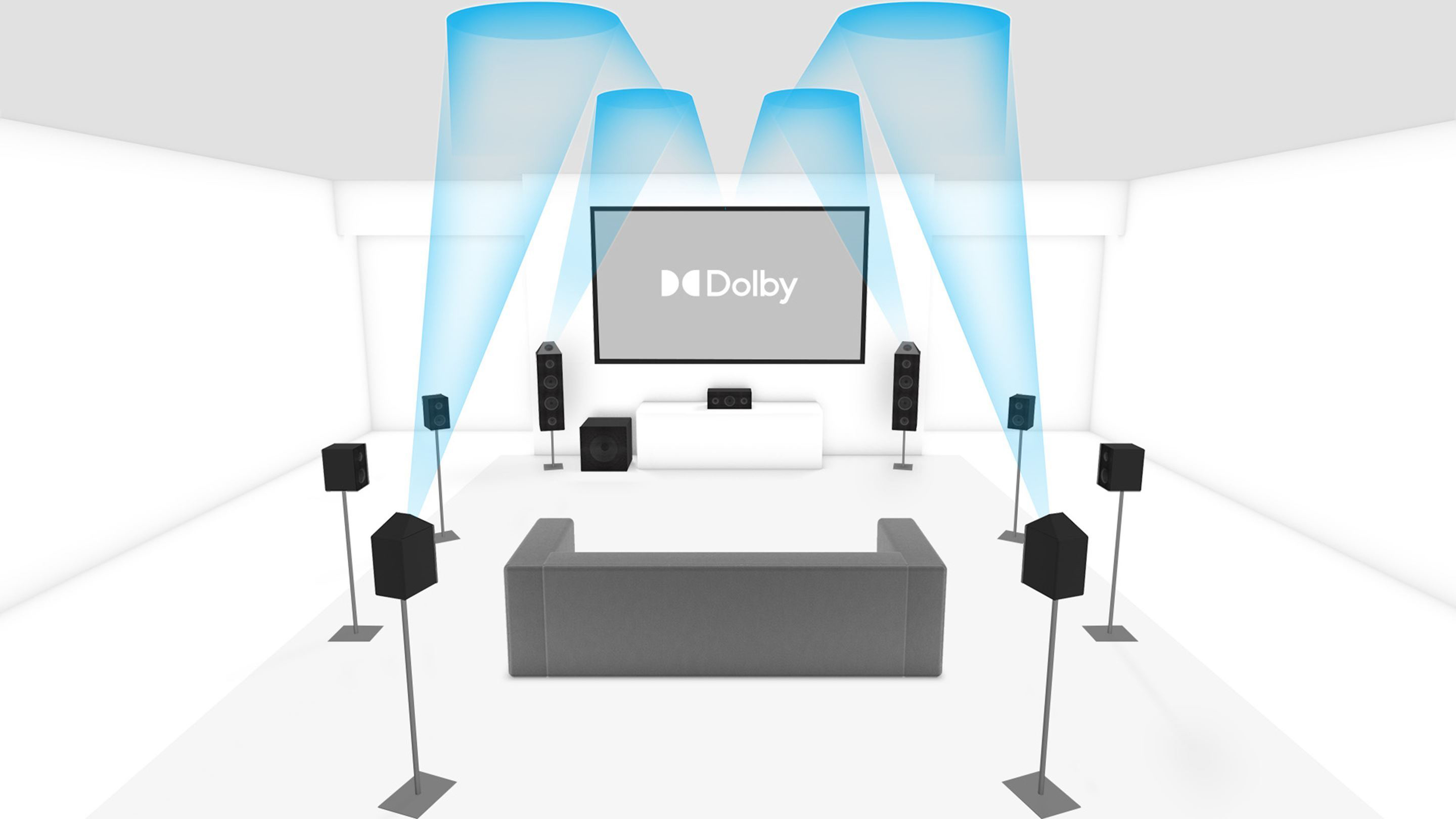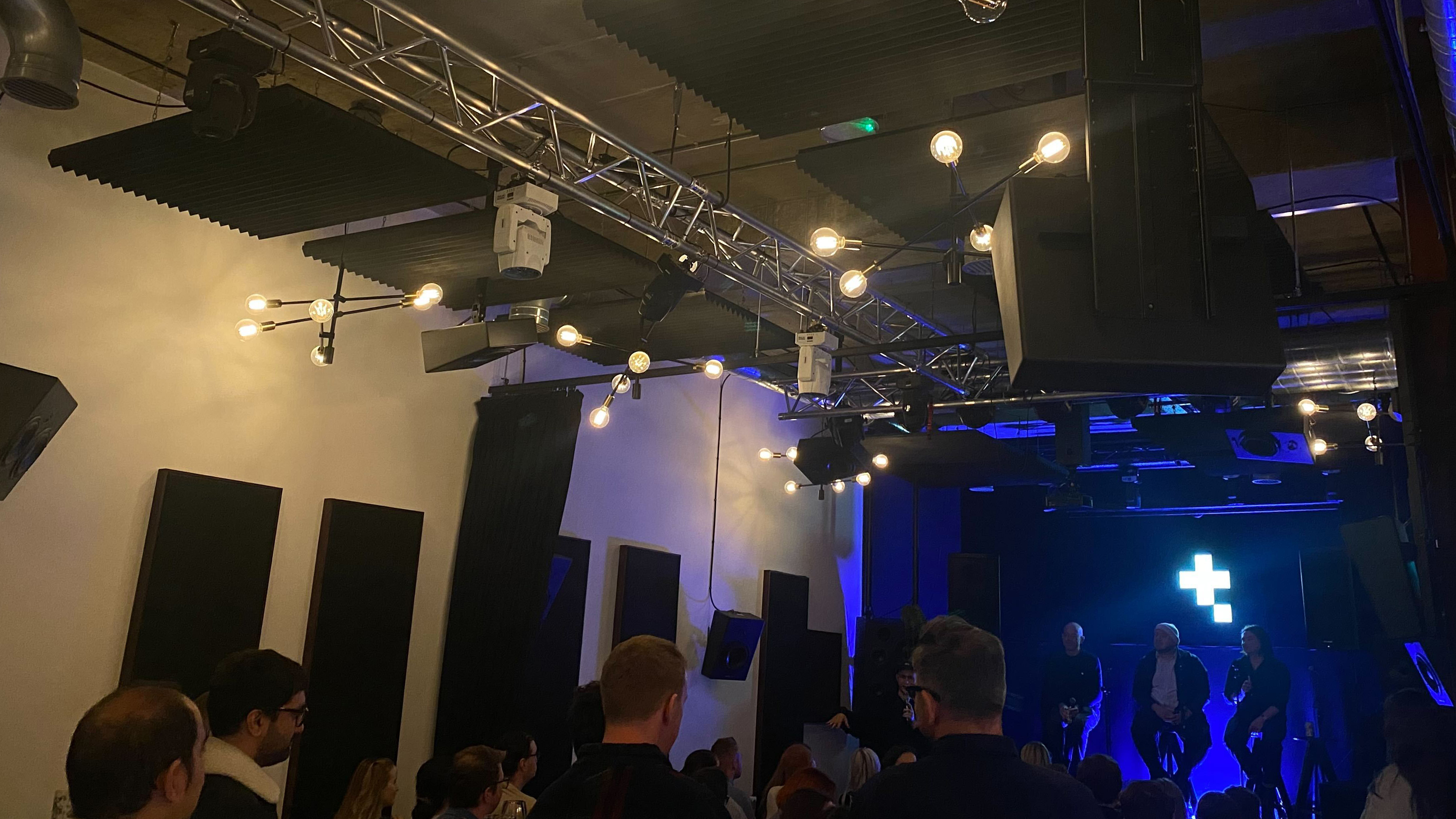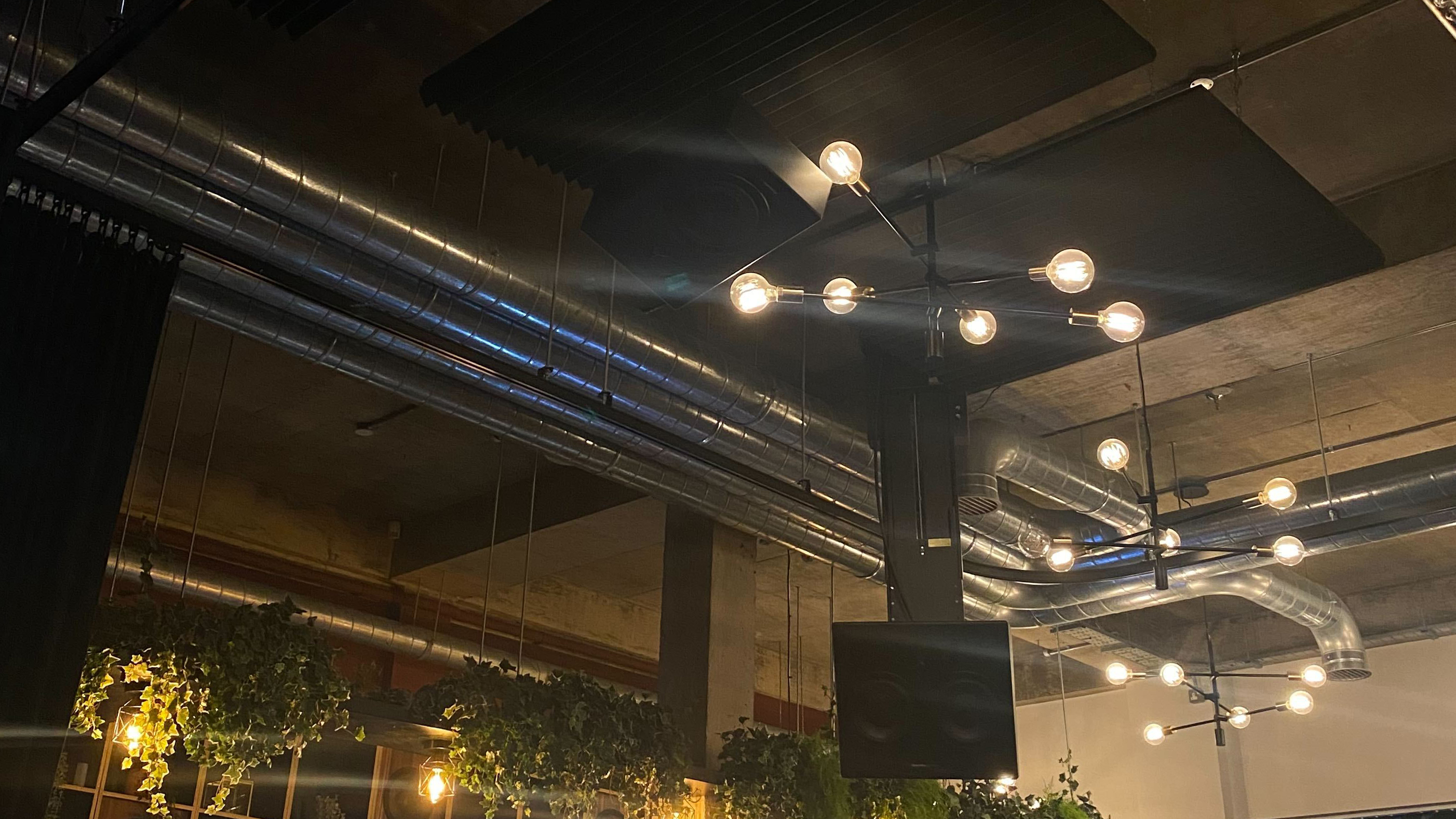
As someone who eats, sleeps, and breathes music, I’m always looking for ways to make the most of my listening experience. This time last year, I acquired the Sony WH1000-XM5 headphones, and I haven’t looked back. The noise-canceling and spatial audio qualities offer a full-bodied experience, and they quickly took over my previous Google Pixel Buds A-Series as my main way of enjoying music. That was until I had the opportunity to experience a one-off Dolby Atmos 9.4.1 setup at a Dolby event in London, and it made me rethink some of my music listening options.
When I’m not using headphones, my current audio setup is very simple: a Denon DHT-S216 soundbar in front of my TV, connected to an older Amazon Fire TV stick model. Spotify is my streaming service of choice, and this combination offers an adequate listening experience that fills the room.
I’ve been pretty satisfied with my setup, but my first-time experience with Dolby Atmos’ bold 9.4.1 surround-sound system confirmed that rethinking your setup, and possibly your choice of streaming platform, can improve – and potentially transform – your listening experience.

Dolby hosted its event at an intimate space in the gallery at Tileyard, a music production and creative networking venue in Kings Cross, London. In the gallery, the seats are arranged in rows at the center of a surround-sound system. The system itself is a Dolby Atmos 9.4.1 configuration comprising nine traditional surround speakers, one subwoofer, and four overhead speakers forming a spatial audio bubble.
The music for our demo session is My Big Day, the new album from indie-rock band Bombay Bicycle Club, who are also in attendance. The album was finished on the Dolby Album Assembler, and the software is also used for the album playback to ensure perfect fidelity- one that can easily be replicated at home on Dolby Atmos-supported music platforms.
The 9.4.1 experience
Once everyone is seated, the lights are dimmed, with only a soft glow of electric blue and white lights beaming from behind the central speaker. A curtain is drawn around the back of the audience, closing us in from outside distractions.
As soon as the ‘play’ button is pressed the quality of the surround-sound setup is immediately apparent, and I feel as if I’ve been placed in the center of an Apple ad campaign. The cymbals on ‘Just A Little More Time’, the album’s opening track, build slowly followed by a strong lo-fi drum beat that pulses from all corners of the room. The difference between this system and my home setup is immediately noticeable, and dramatic, and I’m immediately impressed.

The sound stage is meticulously designed, with the software intelligently adapting to different instruments and sounds. The acoustic talents of the band are displayed to exquisite effect with every guitar pluck coming through clearly, without getting lost amid the percussion arrangements. Similarly, the vocal tracks are powerful without assuming authority over the instrumentation ; they’re incorporated seamlessly into the arrangement rather than dominating it, which I find is usually the case with standard soundbar setups.
On tracks that rely on synths and other digital instruments, the Atmos speakers collaborate to precisely separate each layer of the production. Dense electronic sounds are diluted slightly, making room for smaller accompanying elements to have their time in the shared spotlight – shimmery synth has never sounded more animated.
The album comes to a finish and I sit in awe, with the impact of Dolby Atmos’ spatial audio resonating even as my fellow listeners are leaving their seats to get more drinks from the bar.
Post-experience takeaways
Going back to using my Sony headphones on the commute home so soon after being at the heart of Dolby Atmos’ immersive system was interesting to say the least. I was quickly able to appreciate that Dolby Atmos made my music listening experience just a little more special, with the music speaking to me on a more personal level in a way that doesn’t really translate through streaming on a standard soundbar. The balance between acoustic and electronic instruments and vocals, paired with a responsive sound projection, added substance and texture to my listening experience, thanks to the speakers’ hi-res audio and unique placement.
The playback software dramatically enhanced the overall experience, which has led me to reconsider my streaming options. After hearing music played on Dolby-compatible software, it occurred to me that perhaps it’s my streaming platform that’s letting me down (sorry Spotify).
While the music wasn’t streamed and instead played through Dolby Album Assembler, the overall sound quality was significantly more refined. The Dolby Atmos-based software provided a strong foundation for the playback, and the compatible sound system enhanced the immersiveness of the spatial audio. After the listening experience, I returned to my long-term streaming companion Spotify and the difference was all too obvious.

Prior to the listening session, I hadn’t really made the effort to explore alternative ways to enjoy music. I downloaded Spotify a few years back and was quite comfortable with its functions, layout, and sound quality, so I stuck with it. Acquiring the Sony XM5 headphones improved the experience, but after my first-time Dolby Atmos session it’s clear that the quality of playback can transform what would otherwise be an average listening experience into an immersive personal journey.
While my current streaming approach gets me by on a day-to-day basis, the Dolby session has encouraged me to explore my streaming habits and experiment with higher-quality Dolby Atmos-compatible platforms like Apple Music and Tidal, even if it means leaving my trusted Spotify account behind. When you’ve experienced a Dolby Atmos 9.4.1 configuration, it’s hard to go back.






